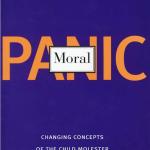Verse 3 – “charge certain persons not to teach any different doctrines” – perhaps certain bloggers need to hear that command!
1 Tim 1:8-11 – the proper use of Law. Note that in v10 doctrine has implications for life (see also 1 Tim 4:16 and 1 Tim 6:3). Paul is given as the premier example of the transforming grace of the Gospel in 1 Tim 1:16.
The vital place of prophecies for Timothy in ministry in 1 Tim 1:18-19. If he needed to fight on the basis of specific words from God, surely we do, too.
Predestination indirectly comes up in 1 Tim 2:4 and 1 Tim 4:10. This subject, including the questions about the extent of the atonement, is also addressed in Romans 9 and Ephesians 1. These passages do NOT contradict each other despite first appearances.
Gender issues are addressed in 1 Tim 2:8-15. I realise that good people differ on the interpretation of this passage – what exactly is “teach or exercise authority”? But, the key question is – do we in any sense feel these words apply to us today? It is those who want to totally ignore them that do irreparable damage to their view of the Bible.
Chapter 3 lists fifteen qualifications for eldership, only one of which (teaching) is a ministry gift. If teaching is for men only as per the context of chapter 2, then it should be no surprise that an elder is consistently described in masculine terms here.
There are six qualifications for deacons, and in the middle, some for “women”. I’m convinced that this is not just the wives of deacons because the position of their mention would mean that Paul was only concerned about deacons’ wives and not the wives of elders! So, instead this is surely about the qualifications for women leaders in the church who, like the male deacons, served under the supervision and direction of the elders. In other words, the way Paul interjects women here leads me to believe that he feels women can serve as deacons in the church.
My conclusion? There IS a role for women to lead in churches, but it would seem from these verses NOT as elders.
1 Tim 4:3 puts the knife into later monasticism – we are not to forbid marriage or require abstinence! Paul does require spiritual progress, and commands his son in the faith to demonstrate this to the people in 1 Tim 4:11-16.
Chapter 5 is headed appropriately enough in my Bible – “Instructions for the Church,” and is almost a social policy document.
Money is addressed in 1 Tim 6:5-10, 17-19, and the right use of alcohol in 1 Tim 5:23. Timothy is urged in the end to guard the deposit with which he has been entrusted.
So there you have it – an overview of 1 Timothy 1-6.
















